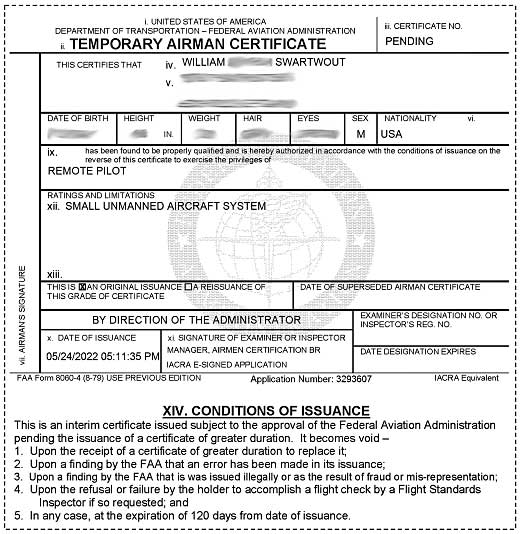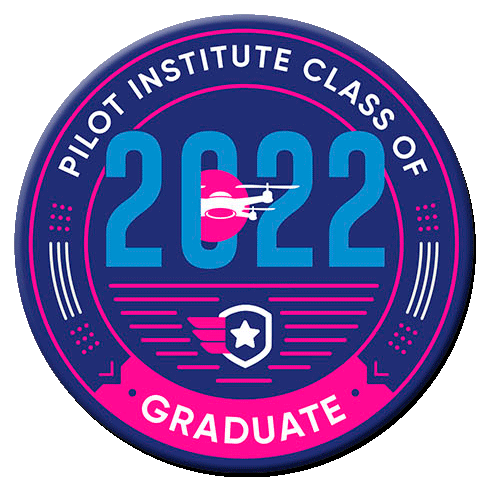I can now fly a “drone” for commercial purposes to expand my photography reach and perspective.
The Part 107 Certificate, as it is called, provides me with an FAA (Federal Aviation Administration) license as a Remote Pilot with the rating of Small Unmanned Aircraft Systems. This allows me to fly my “drone(s)” for commercial purposes. I can now capture photographs of my (our) favorite places – from a new perspective – and offer them for sale in my online galleries. The “commercial” designation deals with the actual intent of the flight – so I did not heretofore shoot any photographs with the intent of offering them as wall art. But Now I Will Begin…
I studied an online course provided by the Pilot Institute and, because of that preparation, was well-prepared to pass the FAA written exam and obtain my Part 107 Certificate. So you might say I am a successful graduate of the Pilot Institute Class of 2022. Seriously, it is a good program and I will write a review in a future article. BTW, I managed to score a 92% on the test. I’ll take it. And make use of it.

It is permissible to fly a drone without a Part 107 license – for recreational purposes only. Those pilots/flyers must complete a training program and earn a TRUST Certificate. “The Recreational UAS Safety Test” is a free program and is offered through several sources. I did my TRUST training through the Pilot Institute’s TRUST Portal when I first got my drone.
However, please be aware that there are many unlicensed drone flyers out there performing commercial operations – doing things like real estate photography, inspection work, etc. – without a license. They are operating in the national airspace system without being properly trained and are, therefore, a safety hazard to others. The federal government has been monitoring, catching and (severely) fining perpetrators. Fines are even being levied against people (for example, real estate agents) who hire unlicensed drone operators.

